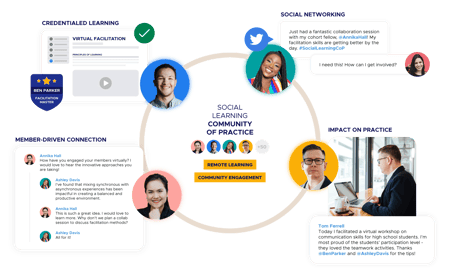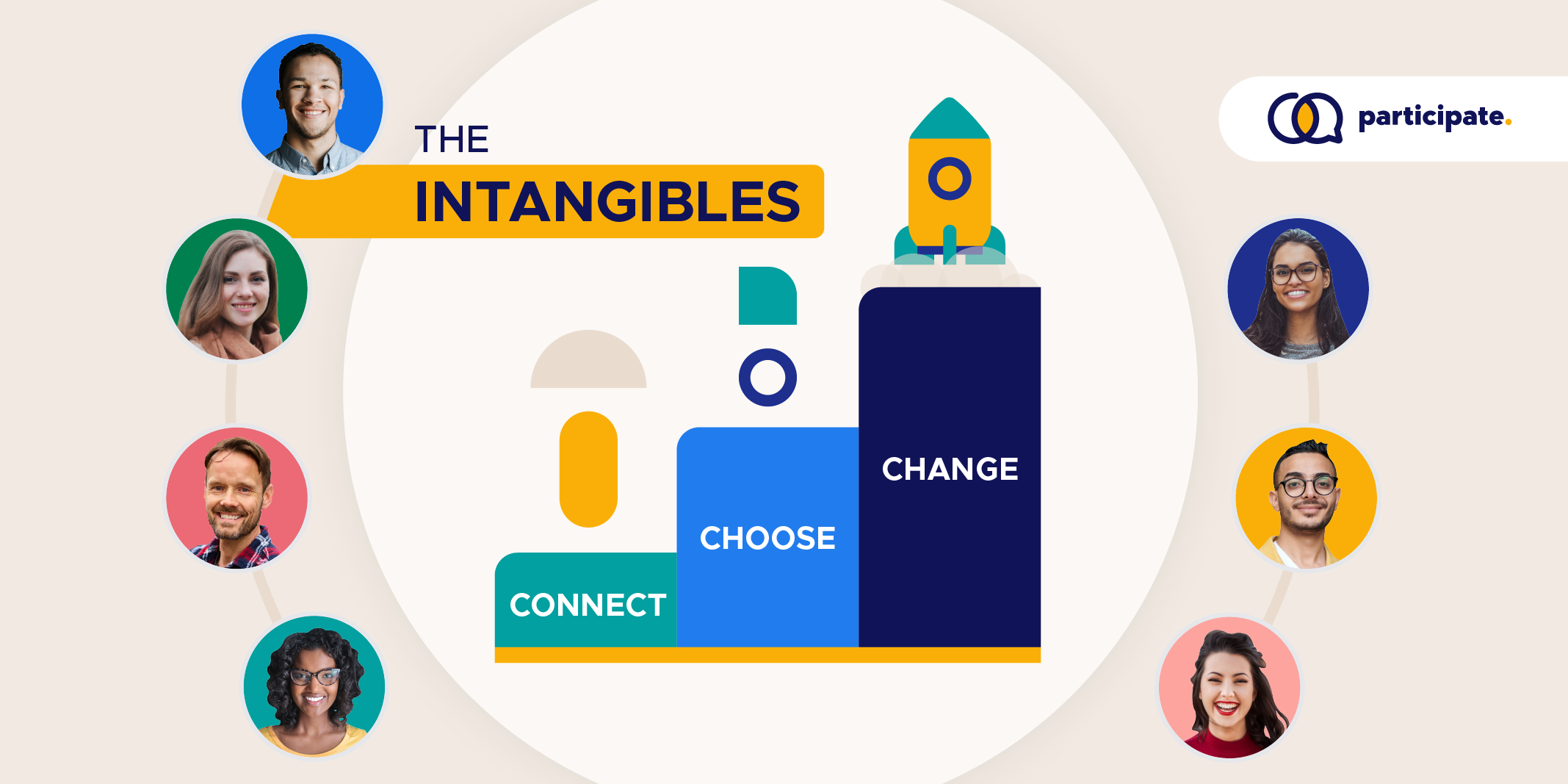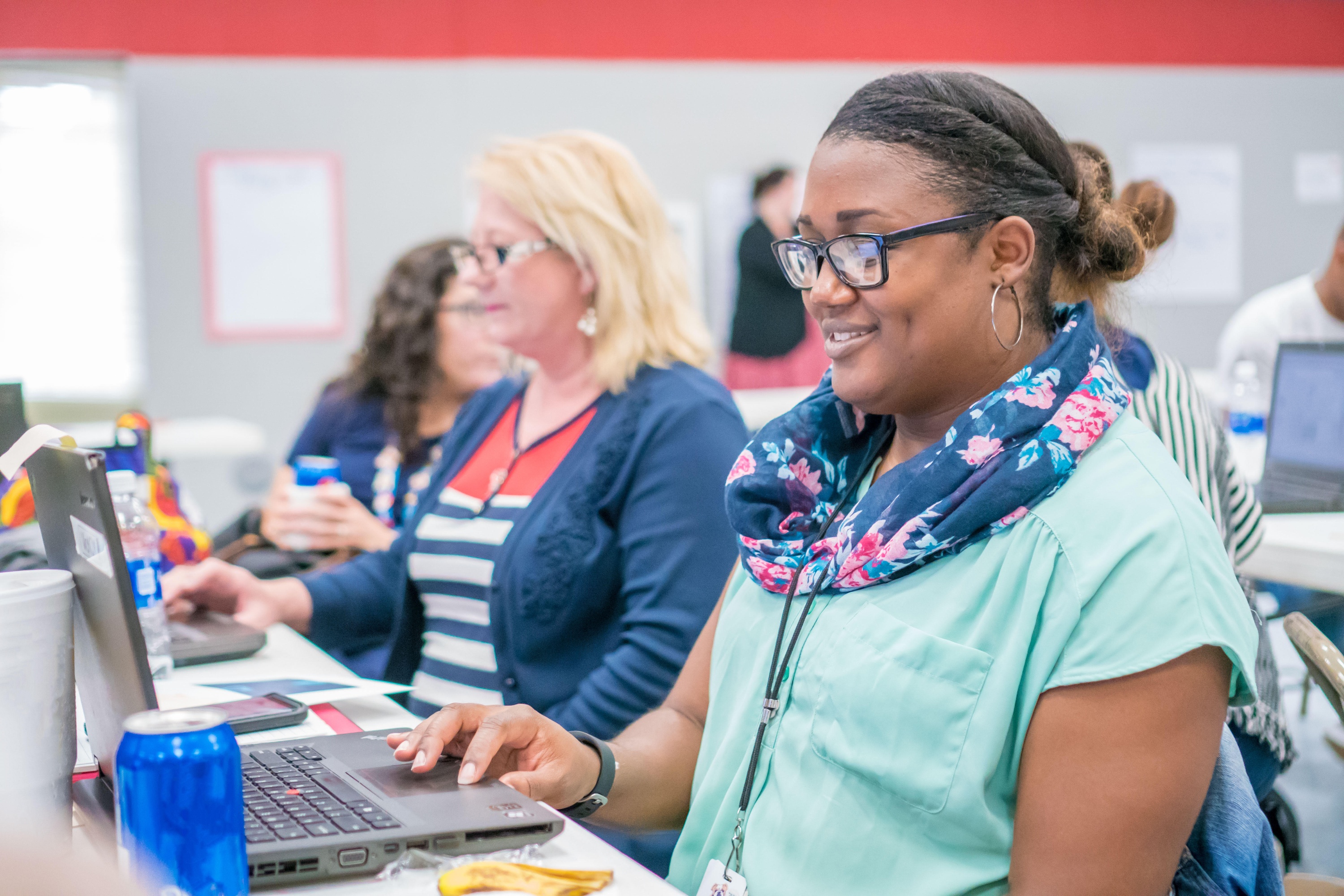Impacting practice and building trust through social learning
.png?width=686&name=EP12_Participate%20Podcast_Blog%20(1).png)
“It’s that sharing that allows a community to go from a group of people talking to each other to a group of people who are co-creating knowledge.” - Mark Otter
For more than 20 years, Mark Otter has worked alongside adult learners. First as a teacher looking for a sense of community and collaboration in his professional development, and now as the CEO of Participate, Inc., discovering and building tools that support best practices for adult learning and connection.
In this episode of the Participate podcast, Mike Washburn and Dr. Julie Keane talk with Otter about what makes Communities of Practice (CoPs) unique and how intentional community learning design leads to increased impact. As a CoP advocate and proponent for learning recognition through micro-credentials, Otter shares his thoughts on why organizations of all sizes and sectors should consider CoPs instead of just standalone courses or online forums.
Impact on practice
Otter starts off the podcast highlighting the importance of an impact on practice within community models. Beyond just a space to connect or disseminate information, Communities of Practice center around improving or advancing member practice. This focus not only gives intention and direction for a community but encourages community members to share and create new knowledge together.
Otter demonstrates this idea through the theory of impact below. When members of a CoP learn together, they’re co-creating knowledge, as opposed to simply consuming it. This knowledge creation challenges traditional top-down learning models and allows for ownership of learning. Members’ learning is then put into their day-to-day practice. Over time, their practice changes and further develops because of the CoP. This change in practice demonstrates the impact of the CoP and increases the measurable impact of that learning. Lastly within this flow, as members share their experiences back into the community, everyone can learn from it, furthering the CoP’s impact.

Visualization of the theory of impact
“What we’ve realized throughout the years is that the critical piece [of a CoP] is reflection, and sharing as part of that reflection,” said Otter.
Building trust and capturing learning
One of the unique affordances of CoPs is that their structure supports the capturing of learning evidence. An open badge structure, Otter shares, captures the impact, sharing and non-traditional learning at each stage and formally recognizes that with a micro-credential. Regardless of the industry, micro-credentials can be trusted as a reflection of an individual’s learning and competencies.
“We had tied the digital badge idea to the idea of building trust as well,” said Otter. “Reputation building is an important way of establishing trust within a community. We began to think about digital badges as a way to make portable the trust that is being built.”
Why now?
Otter and Keane talk about the urgency of building CoPs and creating structures for effective adult learning. We’re at a unique, yet defining crossroads in professional upskilling where organizations are looking for solutions to meet the changing needs of the market while retaining current employees. And they’re faced with a tough decision: invest in a program or system that provides training modules for compliance or build out a community-learning solution to guide employee-driven, collaborative learning.
“We’re in a place now where people don’t have a lot of additional time, both to try to solve their problems and with the money dedicated to helping solve their problems,” said Otter.
“What you don’t want to have is a lot of valuable time and resources put into something that is most likely not going to be effective. There are skills that are required going forward that can be acquired in nontraditional ways. So I think there’s this opportunity now for us to rethink how people gain those skills and gain those competencies.”


